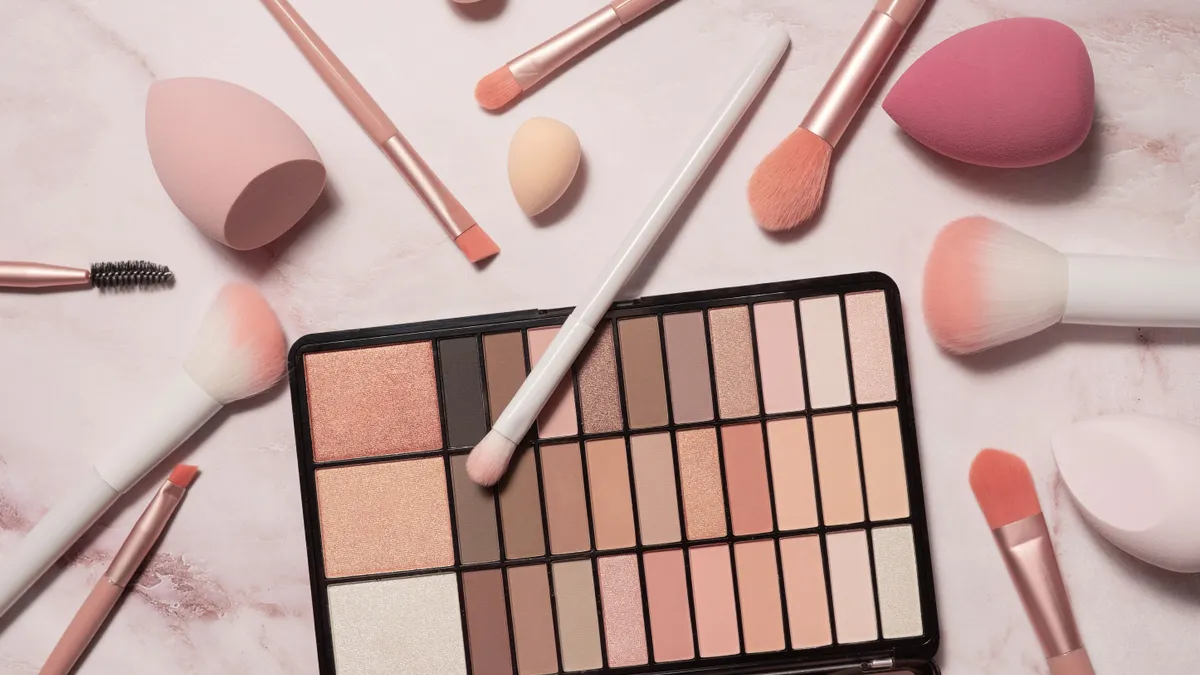Dive Brief:
- Signaling growth across affordable and high-end brands, mass-market beauty sales increased by 6% year over year, while prestige beauty brands saw their sales increase 14% from last year, according to Circana’s latest analysis of receipt-based checkout data. Prestige beauty sales reached $31.7 billion in 2023.
- Prestige hair care brands saw their sales rise 14% from last year, compared to a 6% year-over-year sales bump for mass-market brands. Hair care was also the only category earning most of its sales online, with more than half (52%) of product sales taking place online.
- Prestige skin care brand sales increased by 14% year over year, a slightly higher increase compared to mass-market skin care brands at 11%. High-end lip makeup sales, including products like tinted lip oils and balms, spiked by 31%, the report said.
Dive Insight:
Circana’s report builds upon previous research indicating that consumers are continuing to splurge on cosmetics and skin care purchases amid economic uncertainty. Beauty sales were predicted to rise by 6% every year through 2027, according to a report released last May from McKinsey & Company and The Business of Fashion.
The fragrance category also had a wide growth gap between high-end brands and their affordable counterparts, Circana found. Prestige fragrance sales jumped 12% year over year, while mass-market fragrance sales increased 4%, Circana found.
“The beauty industry is strong and the outlook remains positive for both the mass and prestige sides of the business in 2024,” Larissa Jensen, global beauty industry adviser at Circana, said in a statement. “This performance is remarkable given the phenomenal growth it has experienced for the past two years, but the industry should not rest on its laurels. Consumers continue to cope with economic pressures, and being in tune with their shifting mindset is a must. Flexibility, creative thinking, and effectively harnessing high consumer engagement are all part of the winning formula to drive continued growth.”
Circana’s findings suggest that younger consumers are continuing to favor luxury beauty brands. High-end skin care brands gained market share with 45-to-54-year-olds with a household size that includes children under the age of 18, per the latest analysis.
Cosmetics retailers and their retail partners are tapping into the beauty sales boom. Ulta, for example, surpassed $10 billion in sales last year. Meanwhile, retailers like Target and Kohl’s have partnered with Ulta and Sephora, respectively, to add shop-in-shops within their brick-and-mortar locations. In Kohl's Q3 2023 earnings report, CEO Tom Kingsbury said he was “pleased with our store performance driven by strong growth in Sephora.”














